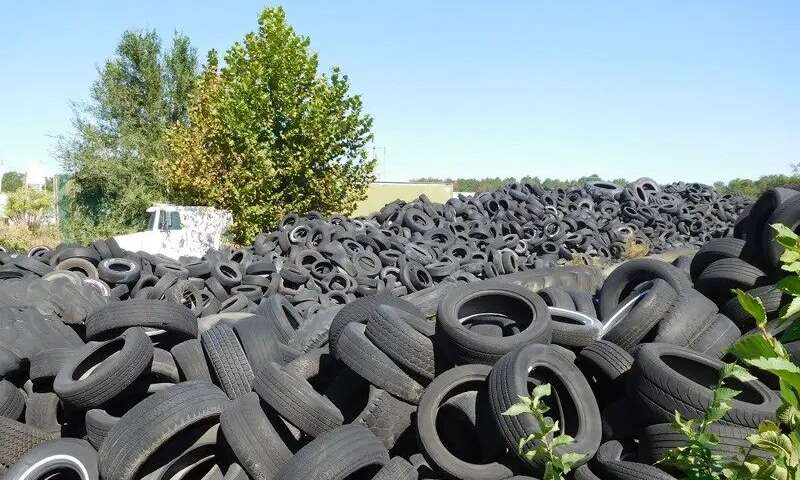FORT SMITH, Ark – Tires catapult our cars and trucks down the highway at speeds greater than 70 miles per hour, typically for at least 50,000 miles. They must grip the road even in wet and icy conditions. No wonder tires are difficult to recycle.
“Tires are a unique and large waste stream,” said Jennie Saxe, assistant professor in the Department of Civil and Environmental Engineering at the University of Delaware. “They represent an achievement of materials science and engineering.”
Besides rubber, they contain steel, manufactured chemicals, textiles and filler compounds. That’s why it’s a challenge to find something beneficial to do with the more than 750,000 waste tires produced just in Delaware every year.
Delaware was one of the last states to develop scrap tire regulations, and there was the issue of what to do with the stockpile of waste tires. Stacked waste tires are an environmental hazard. They can trap precipitation, leaving thousands of stagnant pools in which potentially disease-causing mosquitoes can breed. If a tire pile catches fire, it can burn for weeks or months.
Scrap tires in Delaware are transported to Maryland, Pennsylvania, New York and Virginia for recycling and use as tire-derived fuel. Scrap tires are also processed in New Castle, DE.
In spring 2020 staff of the Scrap Tire Program in Delaware’s Department of Natural Resources and Environmental Control (DNREC) came to the Delaware Environmental Institute (DENIN) at the University of Delaware on the recommendation of other DNREC staff who had previously worked with DENIN researchers. Nicole Hill, environmental program manager of the Scrap Tire Program, was looking for different ways to handle this waste stream, to better understand the pros and cons of different potential uses, and to identify potential future business opportunities in this reuse.
“The Scrap Tire Program is very small,” said Hill. “We have four employees, and we’re tasked with monitoring compliance among generators and also facilitating cleanup at existing tire piles, so our time to look at other things is very limited.”
“At DENIN, one of our goals is to foster collaborations,” said Jeanette Miller, DENIN’s associate director for interdisciplinary programs. “We try to connect faculty expertise, student learning, and the needs of our government agencies, all to develop more sustainable, economically beneficial solutions.”

